Gillian Lwangu Piroth, a Kenyan born lady is making it possible for Kenyans in Germany to enjoy delicious Kenyan meals without having travel all the way back home.
Gillian is based in Frankfurt where she has founded and runs My Ethnic Cooking & Catering (MEC), the first African cookery school in Germany registered in Eschborn. “We conduct most of our businesses in Frankfurt area and the surrounding cities. We also conduct worldwide online cooking courses,” Gillian said.
Having been living in Germany for almost 20 years, Gillian has an ambitious plan of teaching people from other cultures how to cook African dishes and the history of African dishes before the colonial period.
Here’s an exclusive interview Gillian Lwangu Piroth granted AfroNews Germany.
Gillian, when did you initiate your business?
My Ethnic Cooking & Catering (MEC) was founded in June 2019.
What motivated you to start African cookery classes and catering services in Germany?
I was motivated to start African cookery classes and catering when I started going to cooking classes. I realised that no cookery school in Germany had African dishes in their courses and I aimed to be the founder of the 1st African cookery school in Germany. Another motivating action was and still is that my African friends and I always meet on a monthly basis and cook together dishes from our different mama lands in Africa. When we started this initiative, it was just us but with time, we were joined by people from other nations outside Africa. During one of these meetings I got an inquiry to do home catering in a family’s home where their father was celebrating his 50th birthday. Since this was pure coincidence and I didn’t how much to charge I decided to brainstorm, work more on the project and turn it into a money-making machine.
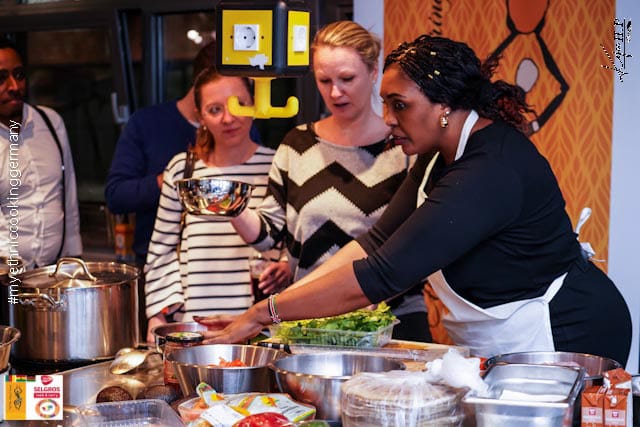
What kind of food do you prepare?
For all catering and home cooking events, I cook Kenyan dishes.
For the cooking classes I try to represent all the 54 African countries alternatingly. In this case I hire freelance cooking experts from different African countries to come and show my clients how to cook their respective dishes.
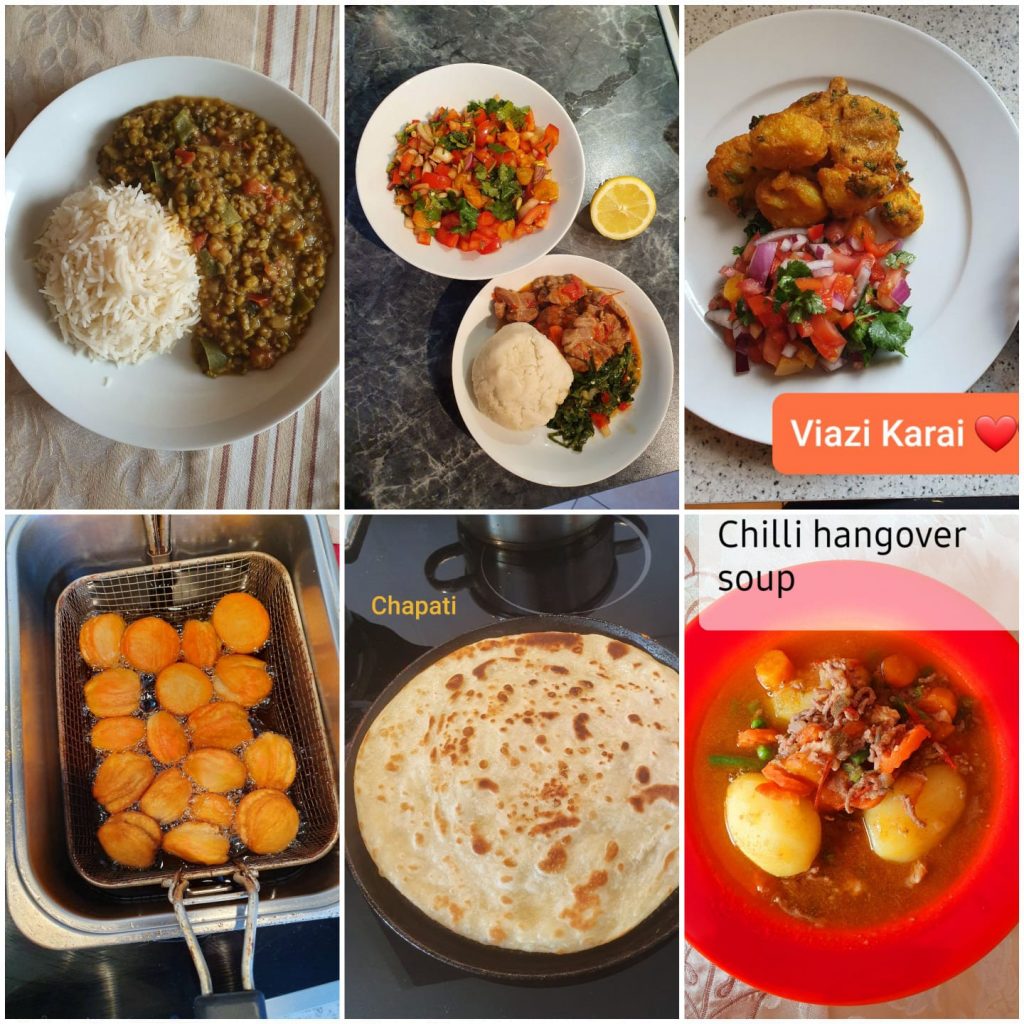
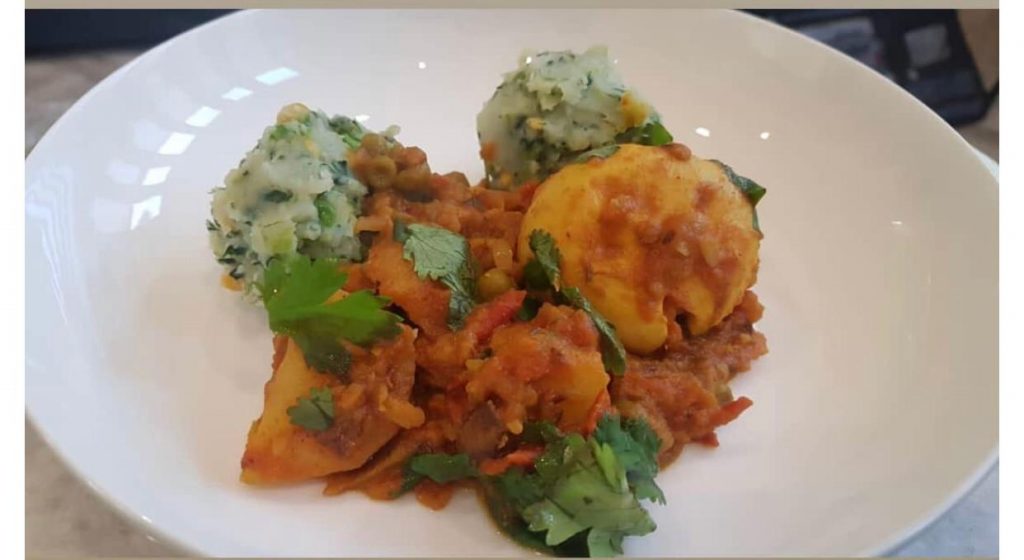
How’s the reaction to your services?
In every business you would get both positive and negative reactions. It’s up to me as a businesswoman to see how I would make the best out of both. Positive feedback motivates me while negative feedback makes me retrace what went wrong and how to improve the company’s standards. MEC African dishes is beyond the boundary of tastes and with this motto, we keep happy returning and regular clients. Our flexibility has also created a lot of understanding between MEC and its clients.
I saw you launched MEC SAFARI PACKS for those who are traveling or bringing food to their loved ones in Hospital or for Delivery to Senior Residents (Grandparents). How and where do you do deliveries?
The deliveries are within and around Frankfurt area. This launch came through as an inquiry where a client wanted to deliver some food to a relative who had just delivered her baby in the hospital. I decided to create packs that’s tasty when eaten cold or warm and served in containers that can be put in a microwave. Secondly the packs have a bit of everything that one can eat and the best part of it, the packs are practical for those who are travelling during the lockdown because most restaurants on the highways are closed. I have also delivered the packs to old age homes.
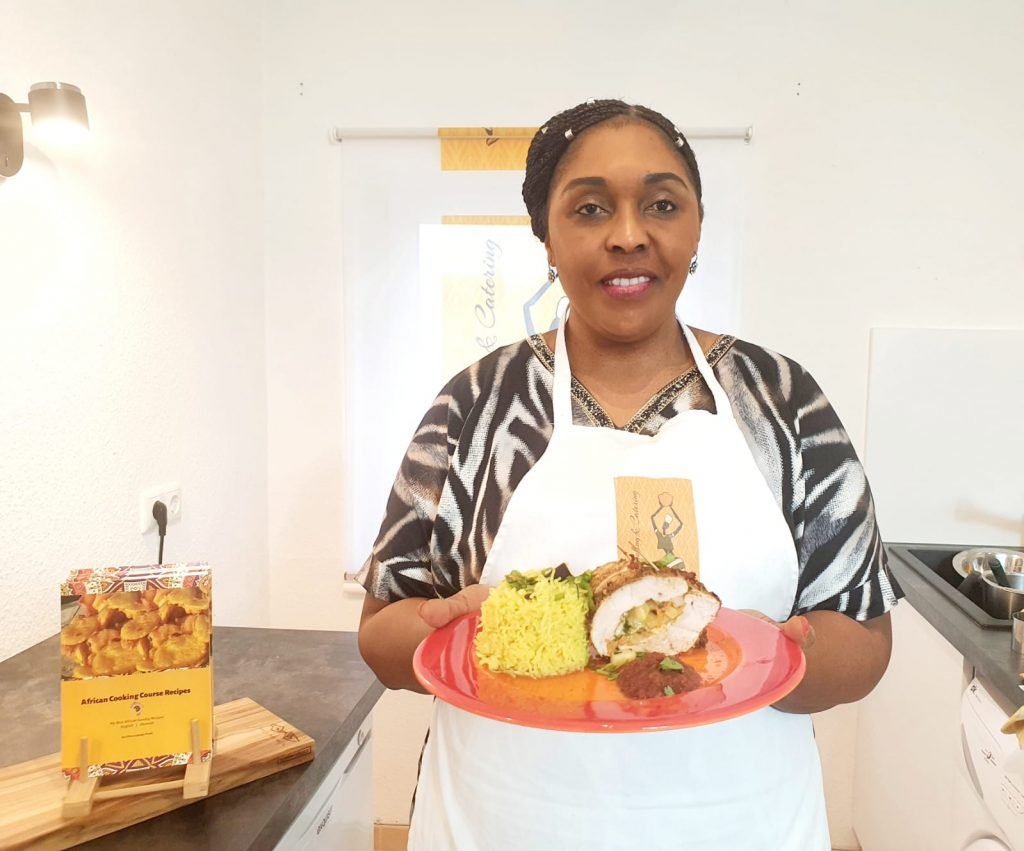
READ ALSO: BEFFTA Awards founder Pauline Long: Reach out to others and offer them support during COVID-19
Has COVID-19 affected your business in any way?
Yes, it has and am taking this in a positive way coz when I started this business, I only looked at the market in Frankfurt and its suburbs. But due to COVID-19, I had to go online in my home kitchen with the cooking courses. The pandemic forced me to be creative in order to keep the business running.
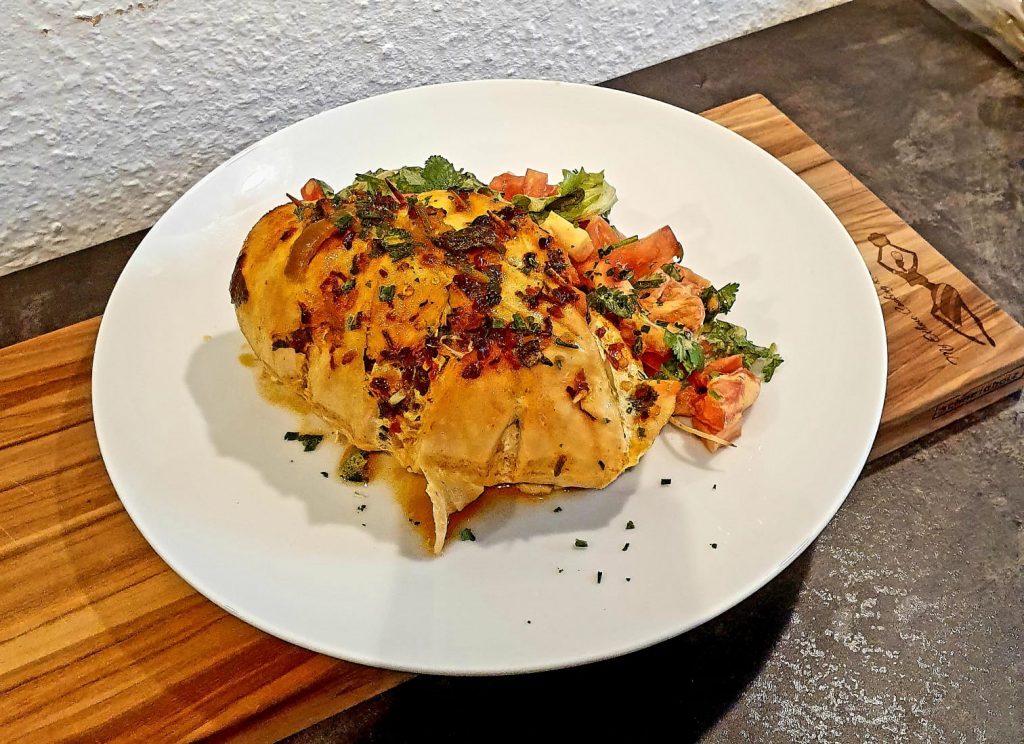
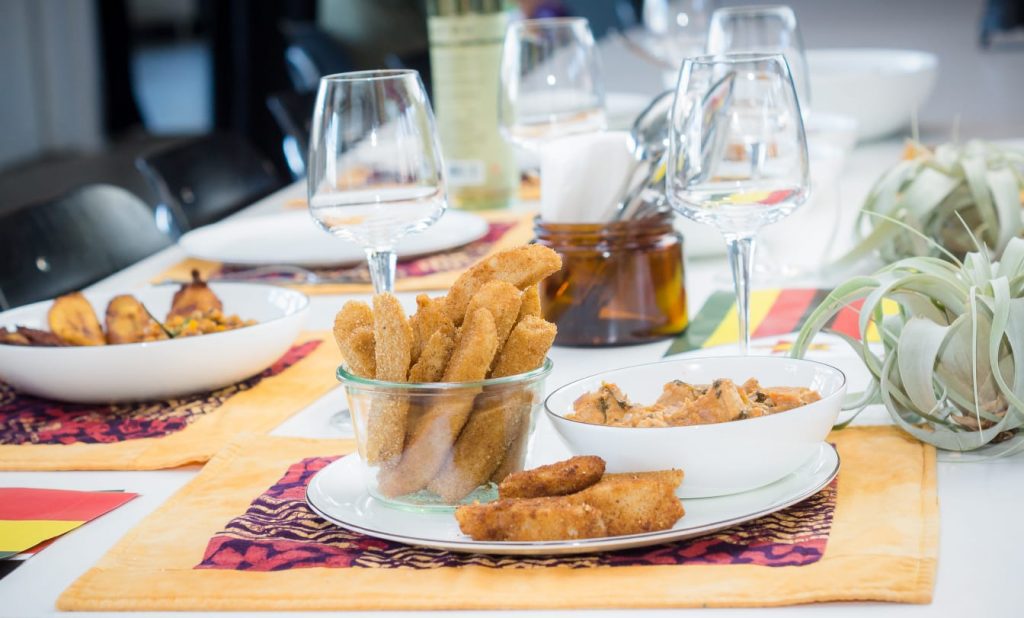
I have also reached an international clientele outside Germany because am able to conduct the online cooking classes to clients in London, Paris or Luxembourg just to name a few. In this case I organise to have ingredients sent to the clients homes a day before the cooking appointment. The big kitchen where I conducted offline cooking courses had to be closed due to lockdown. I also started home deliveries and take-aways.
Tell me something about the cooking courses, how they are organised, who are your students and what foods do they learn to prepare?
The African cooking courses are for cooperates/companies who want to organise team building events or hobby cooks who are interested in exploring different recipes, other ways of cooking and different spices. The cooking courses are conducted in the evenings and over the weekends. We cook foods from 54 African countries (one dish per country per day). All appointments can be booked via MEC website www.myethniccooking.com.
We also have home cooking courses which is mostly preferred for birthdays or just an evening spent with family and friends. The courses run in the evenings “after work” and over the weekends.
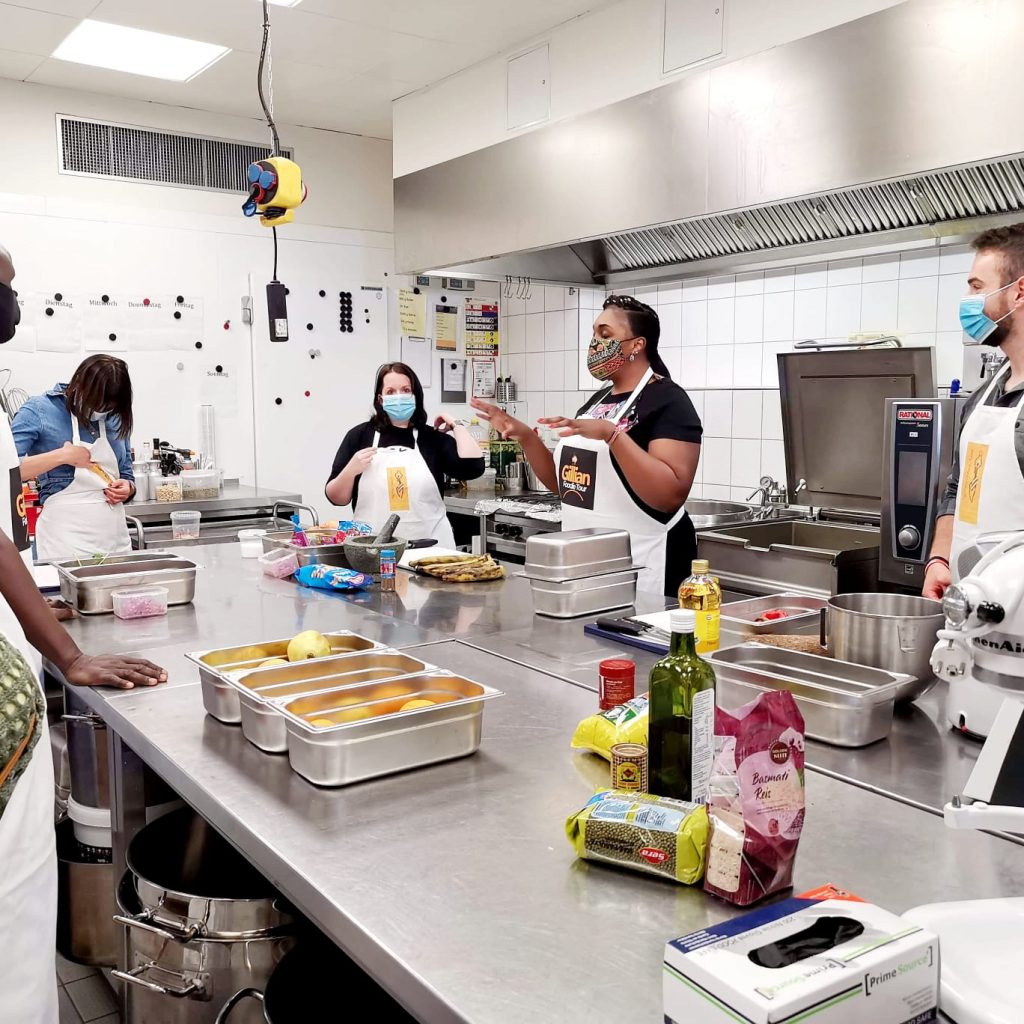
How difficult is it to find African food and ingredients in Germany?
This has proved to be a challenge where at some point I had to replace some ingredients with what is available in the German market. Before I got fully into the business I shopped for suppliers in Germany and the rest of the EU. I get my supplies from the Afroshops in Germany, Indian shops and the rest I would check in France or Belgium.
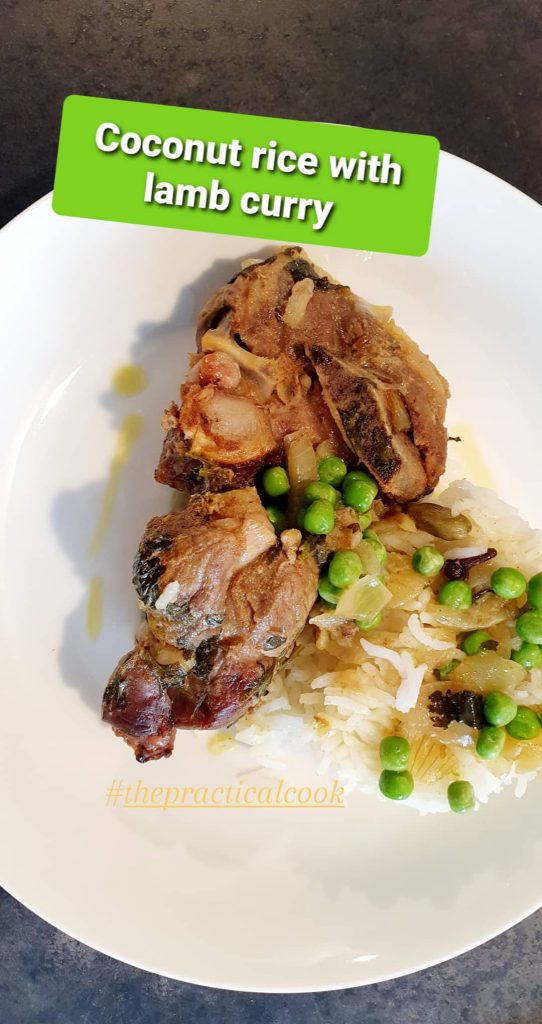
Do you plan to open an African restaurant in Germany?
I must mention that I still work in International Bank in Frankfurt and am really not keen on opening a restaurant yet. I will keep an open mind about this but my concept of conducting African cooking courses is what I love to do.
I feel that my role in this is to teach other cultures in Germany how to cook African dishes and also talk about the history of our African dishes before the colonial period. My role is also to integrate African dishes in Germany so that the authorities would make it easier for us to import or plant our ingredients here.
What’s your advice to young Africans in Germany considering venturing in this field or business?
It is never too late to start a business. I have fulfilled my dreams after 20 years by never giving up and staying focused. You don’t have to be the best but if you are passionate about something, you can always work on improving your passion.
Is there any other thing you feel like sharing with our readers?
For the Africans in the diaspora, the question is how do we work together so that we can have access to our own ingredients, do we have to replace the ingredients all the time? Do we have importers or farmers who can venture into this? Thank you very much for giving me this great opportunity to present my business to you. I hope to see you in one of my cooking courses or book catering for your future events.
By Stephen Ogongo
